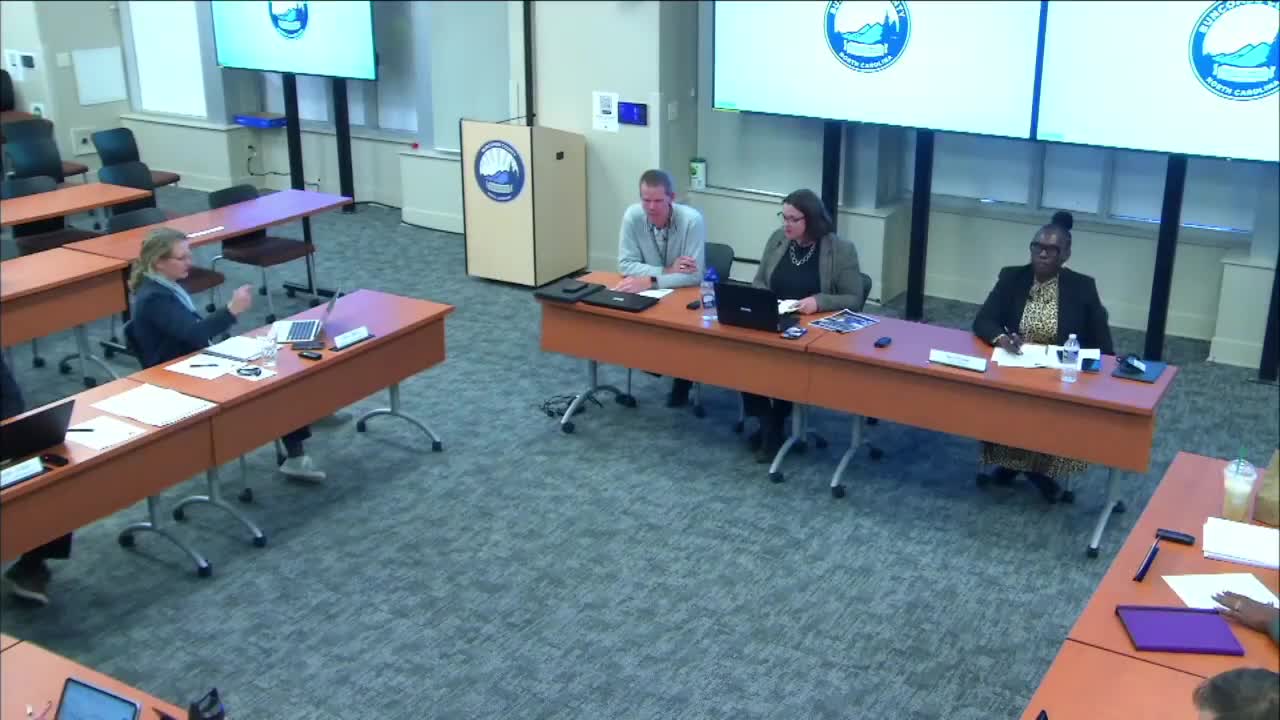Subcommittee recommends $4.38 million for passive recreation projects from Buncombe County open-space bond
Get AI-powered insights, summaries, and transcripts
Subscribe
Summary
A county subcommittee recommended seven passive-recreation projects—acquisitions and improvements—totaling $4,376,262 from the 2022 $30 million open-space bond and recommended holding remaining funds (~$5.56 million) for future cycles; the board will see the formal awards request on Nov. 18.
Rachel Sawyer, strategic partnerships director, briefed the board on recommendations from the Passive Recreation Lands subcommittee, a joint citizen/staff subcommittee of county advisory boards reviewing projects eligible under the 2022 voter-approved $30 million open-space bond.
Staff said $17.5 million of the bond has already been allocated to other priorities and that the subcommittee reviewed 11 project proposals submitted under the passive recreation pathway (total requests roughly $11 million). After site visits, presentations and a multi-department staff review of eligibility and scoring criteria, the subcommittee recommended awards totaling $4,376,262 for seven projects and asked the board to retain the remainder as a reserve for future projects and county-led needs. Chair Kevin Comercode is scheduled to present the recommendations at the Nov. 18 meeting.
Recommended projects include both acquisition and development work. Staff highlighted one acquisition request (Alsom Gardens/Anika Heritage extension area), for which the subcommittee recommended authorizing county real-estate negotiations not to exceed $750,000 for acquisition and closing costs; staff cautioned that additional funds would be required to activate or build amenities on the parcel if the county bought it. Other recommended awards included RiverLink’s Gateway Park development along Riverside Drive, connector and greenway improvements by community groups (Friends of Omni Creek/Asheville GreenWorks fiscal agent), Warren Wilson College trail reconstruction work, improvements to Woodfin’s Riverside Park, and expanded trail work and conserved acres at Camp Greer (Drum Works Community Forest).
Staff described readiness and funding constraints as primary reasons some good-value proposals were not recommended in this cycle: several projects were not yet ready because engineering, planning or commitments from local governments had not been completed. Examples of projects not recommended for this round included a Mountain acquisition that applicants later withdrew after securing other grant funding, Ridgecrest connector work where the town could not commit to planning funding, and Weaverville watershed trails where local priorities shifted to wildfire fuel reduction.
Staff also described interactions with federal and state mitigation funding sources. Some commissioners asked whether parcels might be eligible for Hazard Mitigation Grant Program (HMGP) or DEQ flood-resiliency grants; staff said acquisition for mitigation typically requires a threatened structure or infrastructure and that undeveloped parcels can be more difficult to fund through HMGP but that other DEQ programs could be explored.
Staff reported the subcommittee recommended retaining a pipeline/reserve of roughly $5,558,168 after accounting for prior commitments and the subcommittee recommendations; it also recommended that the board consider allowing passive-recreation or other open-space subcommittee recommendations to access those remaining funds in future cycles. The subcommittee’s recommendations, project lists, and maps will be included in the Nov. 18 packet for the board’s vote.
Ending: The board will receive the Passive Recreation Lands subcommittee’s recommendations and a request to approve awards on Nov. 18; staff said legal review and deed restrictions will be used to preserve public access in perpetuity where the county acquires property.
